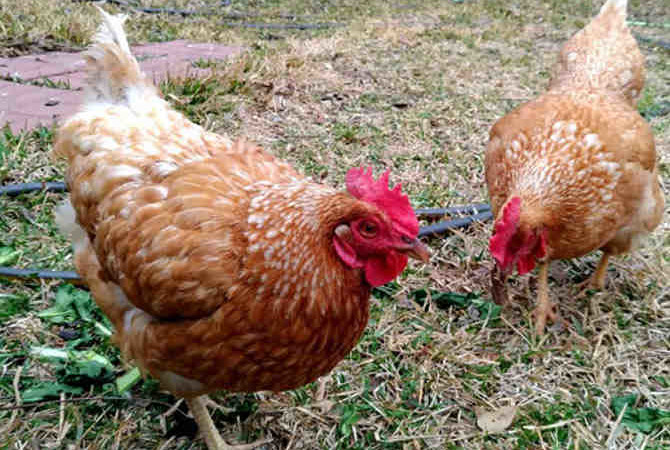

When it comes time to decide on which type(s) of chicken you would like in your flock, narrowing it down can be quite difficult. With so many beautiful breeds with great personalities, choosing just one breed (or several breeds) is not the simplest thing to do. It is easy to determine the basic qualities you want in a chicken but beyond that the line starts to blur. If you find yourself browsing chicken breeds and accumulating a ridiculously long list, here are a few things to consider to help you rein it in and make an informed decision that is best for your wants and needs.
1. Chickens are unique individuals and have personalities and temperaments all their own. That said, breeds as a whole are often classified by general personality traits. For example, some birds are known to be friendlier or more docile than other breeds which might be more prone to being flighty or nervous. For example, if you have children in your home, you want something that will be tolerant of them instead of freaking out at the sight of them. Temperament generalizations do go a long way towards predicting the nature of a certain breed. Every once in a while you may wind up with a bad egg (no pun intended) but overall temperament expectations hold pretty close to true.
2. Another big consideration when browsing breeds should be climate. Just as some birds handle the cold better than others, the same can be said about birds and heat. Depending on where you live, you may need a bird that is more tolerant of cold than heat or vice versa. If you have your heart set on a breed that is not known for faring well in your particular climate, you will need to prepare to make special accommodations if you are to have that breed. Some things to remember when it comes to breeds and climate is that birds with smaller combs are better in cold weather due to the possibility of frostbite on the comb. Heavier birds also fare better in the cold whereas lighter birds tend to handle heat with greater ease.
3. Since a lot of the reason behind having chickens is to have eggs, egg production is usually high on the list of considerations when looking at breeds. Some breeds are known to be good layers of 4+ eggs per week whereas others will lay much less frequently. The size of eggs laid is also a consideration as Bantam birds will lay smaller eggs than a standard chicken. While we are on the topic of eggs, egg color might also be something that matters to you, so be sure to research breeds that lay the color egg you prefer and narrow it down from there based on production.
4. Although broodiness can be lumped in with temperament, it deserves a category of its own because it can be advantageous. If you wish to hatch any of the eggs your chickens lay, having birds with a broody nature can be beneficial. When it comes to using a hen for a hatch, you want one that will do a good job both on the nest and after the chicks hatch, which is where hens with broody tendencies come in handy. If you select a breed that is more inclined to lay an egg and hop right out of the nesting box for a day of adventures, hatching eggs will require more work on your part since your natural incubator has other plans. Alternately, if you want chickens for their eggs and do not wish to hatch any, a breed with broody tendencies will not be good for you as you may have to go to great pains to get eggs away from such birds and to start them laying again.
5. Birds that are good for meat, which are also known as table birds, may be part of your plans as well. In the case of meat birds, looking for birds with a decent growth/maturity rate is useful. Birds with a heavy body are the best choice for meat as you will be able to get more out of them, with each individual bird going further in terms of sustenance for you and your family. Another interesting fact about meat birds is that some are better regarded for flavor than others, and different meat colors exist amongst different breeds, which may or may not put you off when it comes to eating them.
In reality, you cannot have just one bird, or just one breed of chicken. Narrowing it down can be made even more difficult by the appearance of some breeds with their interesting bodies and beautiful feathering. To further complicate matters, hatcheries often throw in a mystery egg or mystery chick of a breed with which you may not be familiar, and as that bird grows you may come to love it and want more like it, causing you to branch out and include more new breeds in your flock.
 Contact Jaguza Support
Contact Jaguza Support